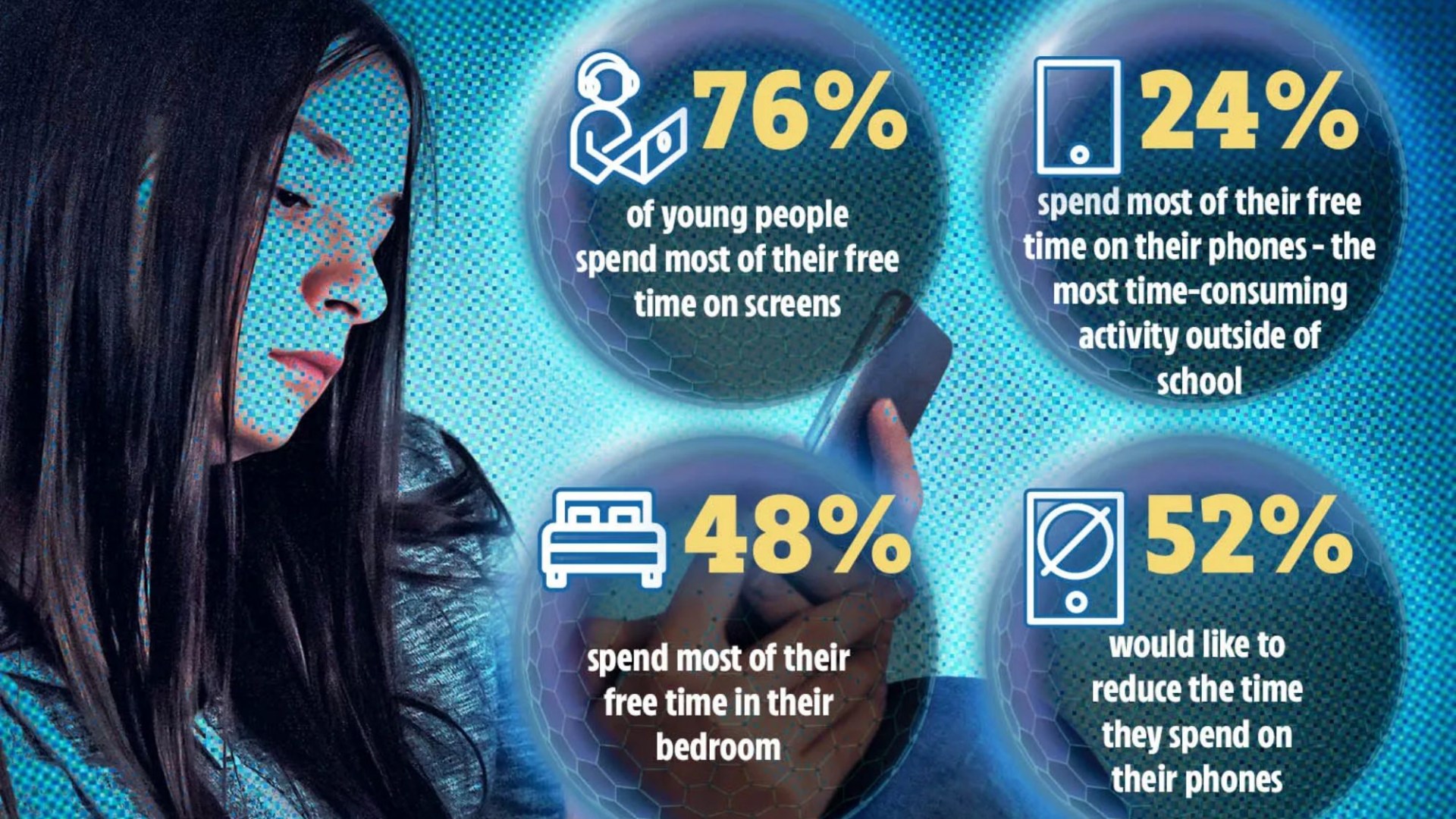IT seems almost impossible now to imagine a world without social media.
But Gen Z-ers who cannot recall a time before smartphones risk becoming the most isolated generation in history.
4

4
Stark new statistics have revealed that the lives of Britain’s youngsters are dominated by hours spent alone in their rooms, scrolling on screens.
And while many actually want to kick their technology habit, they simply do not know how.
Now a charity is calling for action to help them develop social lives.
The Generation Isolation report, a study of 5,000 youngsters in England, exposed the huge number of 11 to 18-year-olds who fear feeling left out, lonely and anxious when without their mobiles.
Three in ten revealed they long to have real-life social experiences, affordable leisure activities and safe places to hang out with friends to improve their time outside school.
But for many, these are simply not available.
Youth charity OnSide says proper investment in youth clubs would give teenagers a chance to build in-person connections that are more compelling than the lure of devices.
The GI report showed that smartphone use is now the most dominant free-time activity for youngsters when they are not in class.
OnSide chief executive Jamie Masraff said: “The message from young people is overwhelmingly clear — they want to ditch smartphone dependency and socialise in person, but feel trapped in a habit that leaves them lonely, isolated and anxious.
“We are letting young people down by treating time outside of school as an afterthought and not creating enough opportunities in real life that are better than life on screens.
“Without the provision of affordable, safe places to flourish outside of school, we risk a generation becoming adults who struggle to exist in a real-world environment, riddled with social anxiety and lacking in social skills.
“Evidence shows that youth clubs offer rich and vibrant environments where young people, supported by dedicated youth workers, have fun, build confidence, develop life skills and become happy, healthy, thriving adults. Youth provision is the untapped solution to the challenges outlined in Generation Isolation.
“It must become a right and reality for all young people.”
Streamed content such as Netflix, YouTube, gaming and general phone use, along with TV viewing, are the main activities that dominate teenagers’ screens.
Overall, the time spent gaming and scrolling through social media has rocketed since the pandemic.
One in four youngsters quizzed claimed they have more friends to talk to on their phone than in reality, and one in 20 insisted that being on their mobile is better than real life.
‘Making friends’
Alarmingly, half of those polled revealed that they feel very high levels of anxiety and loneliness, and spend most of their free time in their bedroom.
But Generation Isolation is clear about the solution.
The research shows that youth clubs can play a vital role in enabling youngsters to build face-to-face connections and develop skills and resilience.
The vast majority of teens who attend such a club say it has made a positive difference to their lives, with “making friends and social interaction” being the most popular reason for this.
Yet despite these clear benefits, just 15 per cent of young people attend a youth centre, and almost half do not have a youth club available near them.
Another report by The Education Committee, published in May, found there had been a 52 per cent increase in children’s screen time in the UK between 2020 and 2022 — and nearly 25 per cent of kids and young people use their smartphones in a way that is consistent with a behavioural addiction.



Other countries are taking action to tackle this growing problem.
Sweden’s Public Health Authority recently issued new guidelines stating that children under the age of two should not use digital media at all, and that older kids should not have more than one to three hours per day.
In the UK, campaigns such as one promoting a smartphone-free childhood are growing in popularity.
And more parents are questioning their child’s screen usage — along with the short and long-term affect it has on them.
On the right, we hear how getting out of the house and finding real-life friendships has helped three teens.
‘It’s like an addiction’
MARIA, 13, has been a member of OnSide’s Legacy Youth Zone in Croydon, South London, for a year.
Before she joined, she would spend all her free time on her phone.
She says: “MY phone is my baby. I feel anxious if I don’t have it.
If I ever lost it, I would be so sad. How would I speak to my friends?
It’s like an addiction. I would like to spend less time on it so that I could do other things.
I know I spend hours on TikTok, but don’t remember a single thing that I’ve watched afterwards. It’s like fast food for your brain.
I come to Legacy as many nights as I can now so that I can meet new people.
You can use your phone here, but you don’t because there is so much going on.”
OUR YOUTH CLUB BOOST
ANTHONY OGBORNE, 39, is a worktop fitter, married to Hayley, 35.
They have two daughters, Chloe, 16, and Isabella, 13, and live in Wolverhampton.

4

4
He says: “CHLOE was bullied at primary and two different secondary schools.
Friends she made turned out to be bullies. They were putting things in her hair and even hitting her.
By 13, when she told us what was happening, Chloe was lacking in confidence and had no trust in others.
The schools didn’t take action, so we had no choice but to home-school her.
But that meant Chloe had no chance to make new friends and felt lonely.
She started learning guitar and turned to TikTok. She built up quite a following, but she wasn’t making real-life friendships.
We persuaded her to go to Onside’s The Way Youth Zone near us. Chloe was so nervous, but once she was inside the door, she loved it.
She felt safe and encouraged. She gravitated towards the gym, where a youth worker put a fitness programme together for her, and the music room.
Now she is in an all-female heavy metal band with friends from The Way.
They are called Dying Addiction and they are gigging across the Midlands.
I’ve written a graphic novel called Don’t Follow The Crowd, about Chloe’s story, to help other parents and young people not feel alone.”
‘Made me more anti-social’

Abbie, 16, joined Warrington Youth Zone in Cheshire two years ago, which boosted her confidence.
She says: “BEFORE I started coming here, I was very quiet.
I would spend a lot of my free time in my bedroom on my phone.
But I found that made me more anti-social.
Joining up has done so much for my confidence.
I discovered a love of performing arts and singing – now I want to be an actress or drama teacher.
I never used to put myself forward, but the youth workers there have given me lots of encouragement. ”




